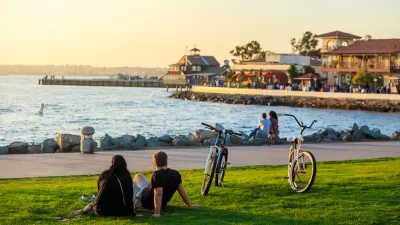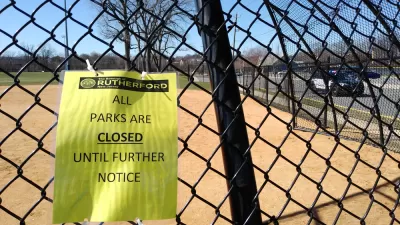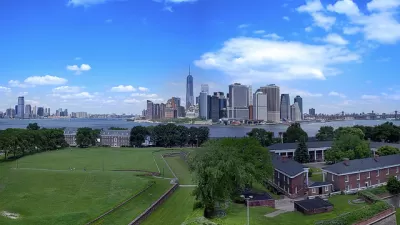The San Diego Planning Department wants to change the system that currently funds improvements to public amenities, facing considerations about the implementation and legality of the proposed alternative.

The San Diego planning department hopes to get rid of a development impact fee system that currently funds such public amenities as parks, libraries, and streets, reports MacKenzie Elmer. Under the system, newer and more affluent neighborhoods get more improvements than their less lavish counterparts. Under the fee system, developers pay a different (often outdated) fee in each neighborhood based on the cost of the improvements and the expected amount of development.
The fees vary dramatically neighborhood to neighborhood. "The highest fees in the county are in Del Mar Mesa, $122,048 per home. They’re lowest in San Pasqual Valley, home to the San Diego Zoo Safari Park, at $2,054," says Elmer. The city wants to share the development fees citywide, bringing up questions about which projects would be prioritized and whether it's legal to spend fees in a neighborhood that was collected somewhere else. The ultimate power lies with the mayor who controls the development impact fees as .01% of the annual budget.
FULL STORY: If Your Local Park Sucks, This Is Probably Why

Maui's Vacation Rental Debate Turns Ugly
Verbal attacks, misinformation campaigns and fistfights plague a high-stakes debate to convert thousands of vacation rentals into long-term housing.

Planetizen Federal Action Tracker
A weekly monitor of how Trump’s orders and actions are impacting planners and planning in America.

San Francisco Suspends Traffic Calming Amidst Record Deaths
Citing “a challenging fiscal landscape,” the city will cease the program on the heels of 42 traffic deaths, including 24 pedestrians.

Defunct Pittsburgh Power Plant to Become Residential Tower
A decommissioned steam heat plant will be redeveloped into almost 100 affordable housing units.

Trump Prompts Restructuring of Transportation Research Board in “Unprecedented Overreach”
The TRB has eliminated more than half of its committees including those focused on climate, equity, and cities.

Amtrak Rolls Out New Orleans to Alabama “Mardi Gras” Train
The new service will operate morning and evening departures between Mobile and New Orleans.
Urban Design for Planners 1: Software Tools
This six-course series explores essential urban design concepts using open source software and equips planners with the tools they need to participate fully in the urban design process.
Planning for Universal Design
Learn the tools for implementing Universal Design in planning regulations.
Heyer Gruel & Associates PA
JM Goldson LLC
Custer County Colorado
City of Camden Redevelopment Agency
City of Astoria
Transportation Research & Education Center (TREC) at Portland State University
Jefferson Parish Government
Camden Redevelopment Agency
City of Claremont





























